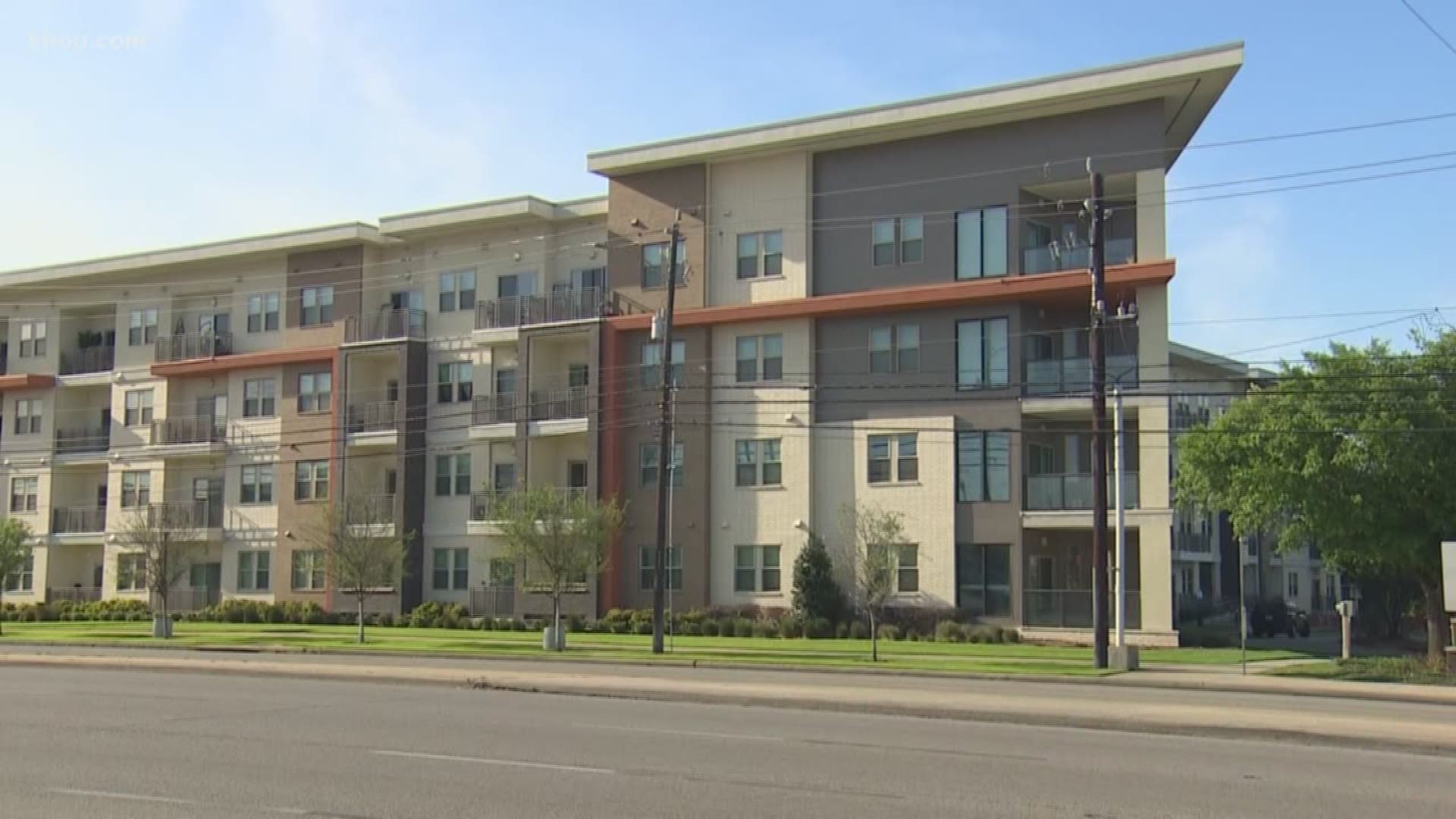HOUSTON — Thousands of Texans who are out of work due to COVID-19 are wondering how they will pay rent as the first of the month approaches.
The stimulus package passed by Congress Friday includes a 120-day moratorium on evictions by landlords with mortgages backed by Fannie Mae, HUD, Freddie Mac, the rural housing voucher program, or the Violence Against Women Act of 1994.
Texas Department of Housing and Community Affairs spokesperson Kristina Tirloni said people who have mortgages through these entities may also qualify for suspended or reduced payments during this time.
Those landlords also cannot charge any late fees or penalties for late payment of rent.
The Texas Apartment Association urges tenants to talk to their property managers now to figure out a payment plan for once the moratorium ends.
"They know they’re going to have some tenants who are going to be unable to pay. They just don’t have any guidance yet from the owners on how to manage this," said University of Houston economics professor Ed Hirs.
For renters, there are ways to get help from the government through grants.
The Texas Department of Housing and Community Affairs receives “emergency solutions grants” which can help people who are homeless or at-risk of being homeless. The TDHCA often redistributes those grants to city and/or county agencies.
As with any grant, people must meet eligibility requirements to get them.
TDHCA spokesperson Kristina Tirloni said the process for a renter to get an emergency solutions grant can take roughly 1-2 months.
RELATED: Answers to your questions about the stimulus package, including who gets the money and how much
Tirloni said the “Help for Texans” section of the TDHCA website also offers grants from organizations and non-profits to help with short or long-term rent relief.
“Individuals tend to only call the organizations in their immediate vicinity,” said Tirloni. “While some of those may look like they’re out of [the area], they may run up against a certain area, boundary, or city. Call all the entities that are on there just in case you’re leaving money aside that you might be able to get.”
Coronavirus symptoms
The symptoms of coronavirus can be similar to the flu or a bad cold. Symptoms include a fever, cough and shortness of breath, according to the Centers for Disease Control. Some patients also have nausea, headaches and stomach issues.
Most healthy people will have mild symptoms. A study of more than 72,000 patients by the Centers for Disease Control in China showed 80 percent of the cases there were mild.
But infections can cause pneumonia, severe acute respiratory syndrome, kidney failure and even death, according to the World Health Organization. Older people with underlying health conditions are most at risk for becoming seriously ill. However, U.S. experts are seeing a significant number of younger people being hospitalized, including some in ICU.
The CDC believes symptoms may appear anywhere from two to 14 days after being exposed.
Human coronaviruses are usually spread through...
- The air by coughing or sneezing
- Close personal contact, such as touching or shaking hands
- Touching an object or surface with the virus on it, then touching your mouth, nose or eyes before washing your hands.
Help stop the spread of coronavirus
- Stay home when you are sick.
- Eat and sleep separately from your family members
- Use different utensils and dishes
- Cover your cough or sneeze with your arm, not your hand.
- If you use a tissue, throw it in the trash.
- Follow social distancing
Lower your risk
- Wash your hands often with soap and water for at least 20 seconds. If soap and water are not available, use an alcohol-based hand sanitizer.
- Avoid touching your eyes, nose, and mouth with unwashed hands.
- Avoid close contact with people who are sick.
- Clean and disinfect frequently touched objects and surfaces.
- If you are 60 or over and have an underlying health condition such as cardiovascular disease, diabetes or respiratory illnesses like asthma or COPD, the World Health Organization advises you to try to avoid crowds or places where you might interact with people who are sick.
Get complete coverage of the coronavirus by texting 'FACTS' to 713-526-1111.

